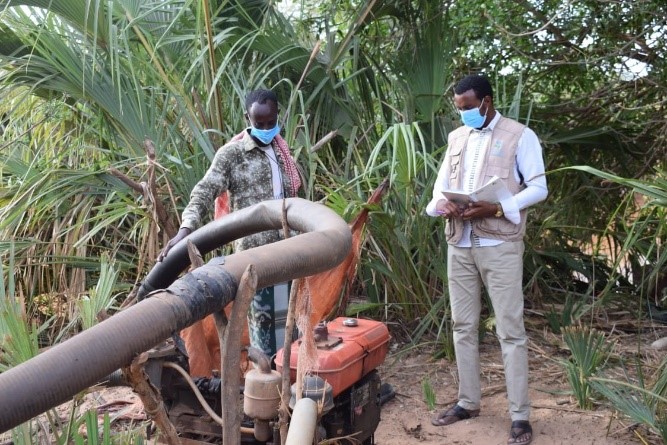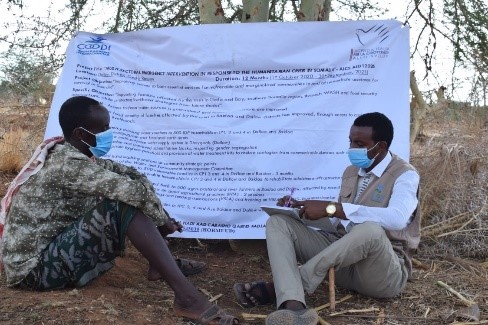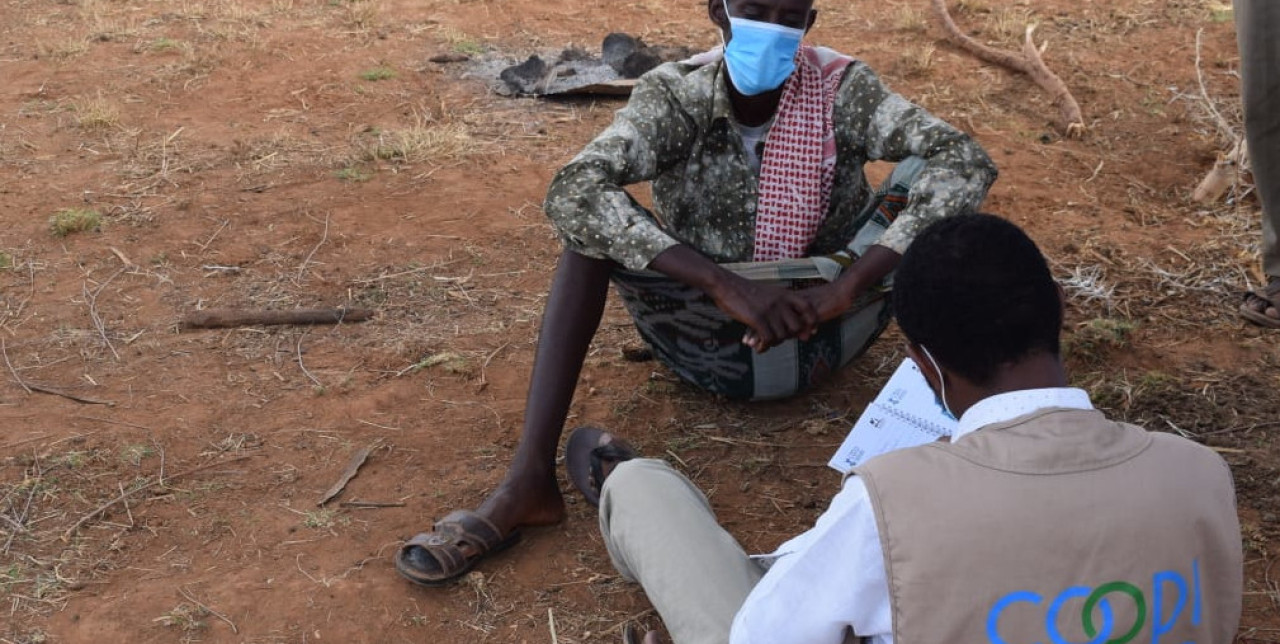29-09-2021 | di COOPI
Somalia. Improving the life of smallholding farmers through Agri-cultural input support
 Mr. Ibrahim Afjer Adur, aged 42, is an agro-pastoralist farmer living with his wife and 8 children (5 males and 3 females) in Dayah village, Dollow District, Somalia. He is the chairperson of Labdhere farmer group, which was founded by 9 farmers from the village.
Mr. Ibrahim Afjer Adur, aged 42, is an agro-pastoralist farmer living with his wife and 8 children (5 males and 3 females) in Dayah village, Dollow District, Somalia. He is the chairperson of Labdhere farmer group, which was founded by 9 farmers from the village.
As owner of 2 hectare of farming land, Ibrahim had initially struggled to earn a living from his farm which he mainly grew onions, yielding 10 -12 bags, weighing between 600 - 720 Kgs per harvest that generated a cumulative income of between $140-$168 in the local market. The fact is that Dayah village is situated in a riverine area that is rendered vulnerable and prone to flash- floods, especially during the ‘Gu’ and ‘Deyr’ rainy seasons. Over the last rainy season, the floods experienced in early stages of the season destroyed most of his crops before maturity and, to further compound the situation, there was the fact that he did not have, and could not afford, anymore seeds to plant.
“The Deyr rains in 2020 were one of the worst I experienced as a farmer. I planted my onions twice and they were destroyed both times. This left me with no more seeds to plant. The situation was worsened by the subsequent drought we experienced during the rest of the season, up until now. Since my main source of income was affected, I could not generate an income over the last two seasons. Furthermore, the food prices had skyrocketed in the market because of limited harvest from local farms and partial closure of cross-border trades due to neighboring countries, which putting in place preventative and restrictions in response to the COVID-19 pandemic. I had to incur debts trying to make ends meet for the family. We could barely afford 2 meals in a day. Those were tough times,” he narrates.
In the framework of the AICS funded Project “Food security, access to water: a multi-sectoral response to the emergency of rural communities, both permanent and displaced, in Baidoa and Dollow districts” (October 2020- September 2021), COOPI identified major areas supporting vegetable planting. Afterwards, it carried out a selection of farmers who have lost their livelihood assets and in need of support to regain means of planting. The farmers were provided with agricultural inputs package containing 10kgs of sorghum and 6 kgs of cowpea seeds as well as 20 liters of fuel to power generators for irrigation. This was complemented by training of 60 farmers on Good Agricultural Practices (GAP) in Dayah village, Dollow district.
Ibrahim says, “When COOPI came to our village, I was fortunate to have been selected to benefit seeds and fuel distributions. We were provided with 10kgs of sorghum and 6 kgs of cowpea seeds which I have already planted in anticipation of adequate rains. I expect my yields to improve as a result of putting into practice the modern farming skills and knowledge I have gained from the on-site GAP training. I envision that the support provided will bring better income that will enable us to meet our household basic needs such as food, healthcare and madrassa (school) for my children,” he adds. “I cannot describe how important GAP is to me as it has had impacts on all aspects of my life. I am forever thankful to COOPI and AICS for the assistance to our community,” he appreciates.
distributions. We were provided with 10kgs of sorghum and 6 kgs of cowpea seeds which I have already planted in anticipation of adequate rains. I expect my yields to improve as a result of putting into practice the modern farming skills and knowledge I have gained from the on-site GAP training. I envision that the support provided will bring better income that will enable us to meet our household basic needs such as food, healthcare and madrassa (school) for my children,” he adds. “I cannot describe how important GAP is to me as it has had impacts on all aspects of my life. I am forever thankful to COOPI and AICS for the assistance to our community,” he appreciates.




 Somalia
Somalia